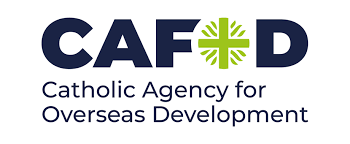Religious Education
RE Curriculum
Intent
"Surely your goodness and love will follow me all the days of my life, and I will dwell in the house of the Lord forever." Psalm 23
Through the teaching of Religious Education, we intend to make a distinctive contribution to the school curriculum by developing pupils' knowledge and understanding of religion, religious beliefs, practices, language and traditions and their influence on individuals, communities, societies and cultures. We aim to promote knowledge and understanding of Catholic faith and life. Religious Education aims to enable pupils to consider and respond to a range of important questions related to their own spiritual development, the development of values and attitudes and fundamental questions concerning the meaning and purpose of life.
Religious Education is an essential component of a broad and balanced education.
Religious Education is concerned with the deep meaning that individuals and groups make of their experiences and how this helps them give purpose to their lives. It aims to engender in the children a curiosity in the ultimate questions about human life, its origin and purpose and to develop the skills required to engage in the examination of and reflection upon religious belief and practice.
Implementation
In line with Bishops’ Conference recommendations, 10% of curriculum time is allocated to Religious Education. R.E. is taught as explicit lessons but is also embedded in other areas of the curriculum and day-to-day life of the school.
Talk for learning is a crucial component in R.E. lessons. Higher level questions are used by teachers to develop children’s thinking and understanding.
Teachers undertake a programme of induction upon commencing work at St. Mary’s to develop their understanding of the Catholic ethos and teaching.
Impact
Religious Education at St Mary’s develops pupils’…
- Knowledge and understanding of the Catholic faith and life;
- Knowledge and understanding of, and their ability to respond to, Christianity, other principal world religions, other religious traditions and world views;
- Understanding and respect for different religions, beliefs, values and traditions (including ethical life stances), through exploring issues within and between faiths;
- Understanding of the influence of faith and belief on individuals, societies, communities and cultures;
- Skills of enquiry and response through the use of religious vocabulary, questioning and empathy;
- Skills of reflection, expression, application, analysis and evaluation of beliefs, values and practices, and the communication of personal responses to these.
Religious Education at St Mary’s encourages pupils to…
- Consider challenging questions of the meaning and purpose of life; beliefs about God, the self and the nature of reality, issues of right and wrong and what it means to be human;
- Understand the influence of religion on individuals, families, communities and cultures;
- Learn from different religions, beliefs, values and traditions while exploring questions of meaning and their own beliefs;
- Learn about religious and ethical teaching, enabling them to make reasoned and informed responses to religious, moral and social issues;
- Develop their sense of identity and belonging, preparing them for life as citizens in a plural, global society;
- Develop respect for and sensitivity to others, in particular those whose faiths and beliefs are different from their own.
Religious Education at St Mary’s enhances pupils’…
- Awareness and understanding of religions and beliefs, teachings, practices and forms of expression;
- Ability to reflect on, consider, analyse, interpret and evaluate issues of truth, belief, faith and ethics and to communicate their responses.
Religious Education at St Mary’s offers…
- Opportunities to develop personal reflection and spirituality.
R.E. and St. Mary’s Drivers
Here at St. Mary’s, our whole curriculum is underpinned by our FAITH and three other drivers - COMMUNITY, COMMUNICATION and WHOLE CHILD.
These drivers are reflected in our R.E. curriculum.
Community
St Mary’s is a multicultural school and we celebrate our richness of diversity. That diversity is echoed in the realisation that the Catholic Church is a local, regional and global community. Throughout the school, pupils study the formation of the community of the Church and what it means to be part of that community.
Communication
We believe that communication is an essential life skill and feel passionately about enabling all pupils to develop effective communication skills. As part of the R.E. curriculum, there are many opportunities for pupils to communicate their learning through written and oral presentations and creative output such as role play.
Whole Child
Our curriculum is designed to meet the needs of all the children in our school and to prepare them for success in life, however and whatever that might mean to them as they grow and develop. The R.E. curriculum is designed to allow all pupils to flourish. Lessons are both academic and creative to allow all to be successful.
The spirituality of a child is important in their sense of self and this is encouraged and developed through the R.E. curriculum too.
R.E. and Cultural Capital
In R.E. there is great potential for children to acquire cultural capital in the following ways:
- The study of other world faiths;
- Using works of art as a springboard for learning;
- Visits to other places of worship;
- Attending church services;
- Drama (role play) used as a teaching technique;
- Dramatic performances of religious events, e.g. the Nativity story;
- Spirituality and reflection sessions;
- Charitable giving;
- Partnerships with charitable foundations such as CAFOD and FIND;
- Collective Worship with a variety of themes.
Prayer Trail
Cafod



